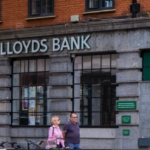Food delivery giant Deliveroo has dismissed 105 riders since April 2024 as part of its ongoing effort to combat illegal immigration within its workforce. The company confirmed the removals to MPs amid increasing government scrutiny over the abuse of its substitution system, which allows riders to appoint others to complete deliveries on their behalf.
The crackdown comes in response to mounting political pressure on gig economy firms—including Just Eat and Uber Eats—to tighten employment checks and prevent undocumented migrants from working under false accounts. Many platforms have since introduced selfie and video verification to ensure that the registered account holder is the one completing deliveries.
Government Pushes for Stronger Controls
Paul Bedford, Deliveroo’s director of policy, detailed the company’s efforts in a letter to the Commons business and trade select committee, stating:
“We have off-boarded 105 Deliveroo riders since April 2024 due to their substitutes providing invalid right-to-work documents. To be clear, a substitute rider must have their right-to-work status verified before they can complete any orders with Deliveroo.”
Concerns over illegal working in the gig economy have grown significantly, with government figures revealing that 40% of delivery riders stopped in random checks in April 2023 were working illegally. Some asylum seekers who had crossed the Channel were found to be earning up to £1,500 per month from food deliveries while staying in government-funded hotels.
The substitution system has been a major point of contention, with former immigration minister Robert Jenrick criticizing it for fuelling illegal immigration and compromising public safety. The Labour government has since taken up the initiative, with employment rights minister Justin Madders receiving a dossier from Deliveroo outlining its measures to tackle the issue.
Deliveroo Defends Its Actions
A Whitehall source described Deliveroo’s workforce as an “area of concern” for the government, which is pressuring all major gig economy platforms to implement stricter employment checks.
A Deliveroo spokesperson defended the company’s actions, stating:
“Deliveroo has led the industry in taking action to secure our platform against illegal working. We were the first to introduce direct right-to-work checks, a registration process, daily identity verification, and additional device checks for riders and substitutes.
“We take our responsibilities extremely seriously and continue to strengthen our controls to prevent misuse of our platform. We encourage the Government to ensure that all major platforms adopt the same standards.”
As scrutiny over gig economy employment practices intensifies, Deliveroo’s crackdown may set a precedent for the industry. However, questions remain over the scale of illegal working and whether further regulatory measures will be necessary.









